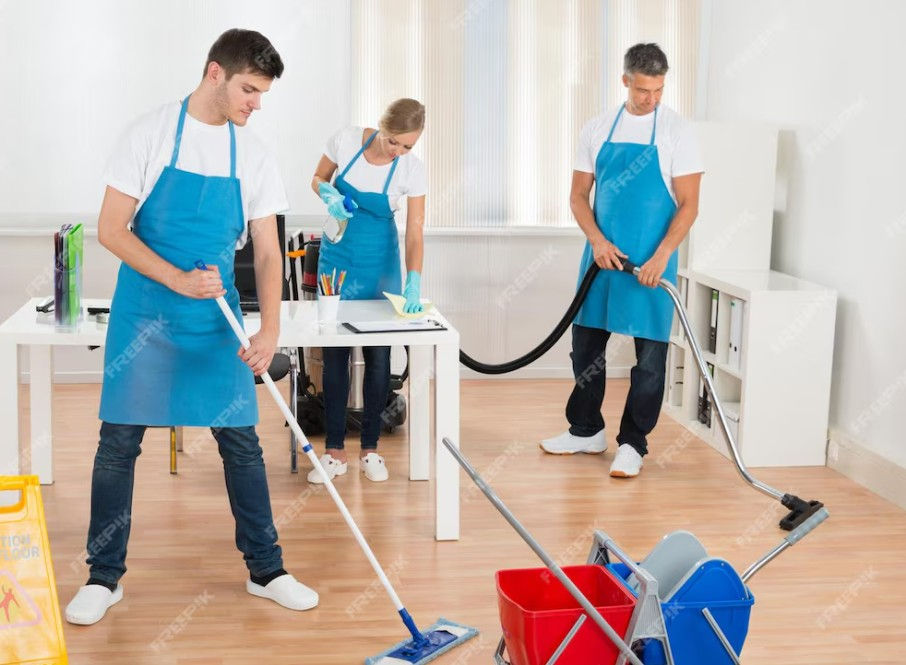What is the Difference Between a Maid and a Housekeeper?
- annejeffers16
- Feb 22, 2025
- 5 min read
When it comes to keeping a home clean, organized, and running smoothly, terms like "maid" and "housekeeper" often come up in conversation. While these words are sometimes used interchangeably, they don’t mean the same thing. Understanding the distinction can help you decide which type of service best fits your needs—whether you’re hiring help for your home or simply curious about the roles. In this blog post, we’ll explore the differences between a maid and a housekeeper, delving into their responsibilities, historical context, and modern-day applications.

The Basics: Defining a Maid and a Housekeeper
At first glance, both maids and housekeepers seem to share a common goal: maintaining a tidy and functional living space. However, their roles differ in scope, depth, and even perception.
A maid is typically associated with cleaning-specific tasks. The term has historical roots, often conjuring images of uniformed workers in grand estates, dusting furniture, or scrubbing floors. Today, a maid’s primary duty remains focused on cleaning—think vacuuming, mopping, wiping down surfaces, and tackling messes. Maid services are often hired for one-off or recurring cleaning jobs, with an emphasis on getting the job done efficiently and leaving the space spotless.
A housekeeper, on the other hand, takes on a broader role. Beyond cleaning, housekeepers manage the overall upkeep of a home. This might include organizing closets, doing laundry, preparing meals, running errands, or even supervising other household staff in larger homes. Housekeepers are often seen as caretakers of the household, ensuring everything runs smoothly day-to-day, rather than just focusing on cleanliness.
Historical Context: Where These Roles Originated
To fully grasp the difference, it helps to look at the history behind these terms. The word "maid" comes from "maiden," historically referring to a young, unmarried woman who served in a household. In Victorian times, maids were part of a strict hierarchy in wealthy homes—parlor maids, chamber maids, and kitchen maids each had specific duties, mostly centered on cleaning and assisting with basic tasks. Their role was labor-intensive and task-specific, often under the direction of a higher-ranking servant like a housekeeper.
The term "housekeeper" has a more managerial tone. Dating back centuries, housekeepers were often senior staff members in affluent households, responsible for overseeing the home’s operations. They managed inventories, coordinated with cooks and maids, and ensured the estate was presentable for its owners or guests. While cleaning might have been part of their oversight, their primary role was to keep the household functioning as a whole.
In modern times, these historical distinctions have blurred but still influence how we view the two roles today. Maids remain linked to cleaning, while housekeepers take on a more holistic approach to household management.
Responsibilities: What They Do Day-to-Day
Let’s break it down further by comparing their typical duties.
Maid Responsibilities:
Dusting furniture and surfaces
Vacuuming carpets and rugs
Mopping floors
Cleaning bathrooms (sinks, toilets, showers)
Tidying up rooms
Taking out the trash
Maids are often hired through cleaning companies or as independent contractors for specific time slots—say, a two-hour deep clean once a week. Their focus is narrow but thorough, targeting dirt and clutter without branching into other household tasks.
Housekeeper Responsibilities:
All the cleaning tasks a maid might do
Laundry (washing, folding, ironing)
Organizing pantries, closets, or storage areas
Meal preparation or grocery shopping
Managing household schedules (e.g., coordinating repairs or deliveries)
Light childcare or pet care (in some cases)
Housekeepers might work full-time or part-time for a single family, often forming a longer-term relationship with the household. Their role is more dynamic, adapting to the specific needs of the home and its residents.
Employment Arrangements: How They’re Hired
Another key difference lies in how maids and housekeepers are typically employed. Maids are commonly hired through agencies or as freelancers for short-term or recurring gigs. You might book a maid service online, specify the areas you want cleaned, and expect them to arrive with their own supplies. It’s a transactional relationship—once the job is done, they’re off to the next client.
Housekeepers, by contrast, are more likely to be employed directly by a family or individual. They might live in the home (especially in wealthier households) or come in daily/weekly as a consistent presence. Because their duties extend beyond cleaning, they often require more trust and communication with the homeowner, tailoring their work to the household’s unique rhythm.
Perception and Cultural Nuances
Culturally, the terms carry different connotations. "Maid" can sometimes feel outdated or even servile, tied to its historical baggage of low-wage, labor-intensive work. In some regions, it’s been replaced by terms like "cleaning professional" to reflect a more modern, respectful view of the job. "Housekeeper," meanwhile, suggests a higher level of responsibility and skill, often commanding greater respect and higher pay due to the broader scope of work.
In pop culture, think of a maid as the uniformed worker darting around in a period drama, while a housekeeper might be the stern, aproned figure keeping Downton Abbey in order. These stereotypes don’t fully capture today’s reality, but they hint at how the roles have evolved.
Which One Do You Need?
Deciding between a maid and a housekeeper depends on your household’s needs. If you’re drowning in dust bunnies and need a quick, thorough clean, a maid is your go-to. They’ll swoop in, tackle the mess, and leave your home sparkling without requiring much oversight.
If your life is chaos—laundry piling up, fridge empty, schedules a mess—a housekeeper might be the better fit. They’ll not only clean but also bring order to the madness, acting as a right-hand helper for busy families or individuals.
Cost is another factor. Maids typically charge by the hour or job (e.g., $20–$50 per hour), while housekeepers might earn a salary or higher hourly rate (e.g., $15–$30/hour or more), reflecting their wider skill set.
Final Thoughts
In essence, a maid is a specialist in cleaning, while a housekeeper is a generalist in home management. Both play vital roles in making life easier, but their differences matter when choosing the right help. Next time you’re debating between the two, consider your priorities—sparkling floors or a fully functional home—and you’ll know exactly who to call.
Frequently Asked Questions (FAQs)
Can a maid and a housekeeper be the same person?
Yes, in some cases! If a person performs both cleaning and broader household tasks, they could be considered both. However, the titles reflect their primary focus—cleaning for maids, management for housekeepers.
Are housekeepers more expensive than maids?
Generally, yes. Housekeepers often command higher rates due to their diverse responsibilities, while maids are paid based on cleaning-specific work, which can be more affordable.
Do maids and housekeepers bring their own supplies?
Maids often do, especially if hired through a service. Housekeepers might use household supplies, depending on their arrangement with the employer.
How often should I hire a maid or housekeeper?
It depends on your needs. Maids are typically hired weekly, biweekly, or for one-time cleans. Housekeepers might work daily, weekly, or live-in, based on the household’s demands.
Is tipping customary for maids or housekeepers?
Tipping isn’t required but is appreciated, especially for exceptional service. For maids, 10–20% of the service fee is common; for housekeepers, a small bonus or gift during holidays is a nice gesture.
For more information: Click Here!




Comments